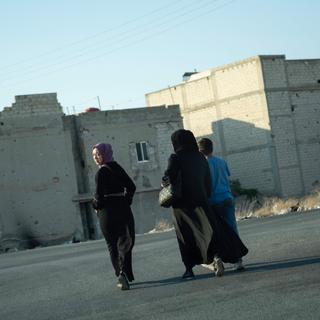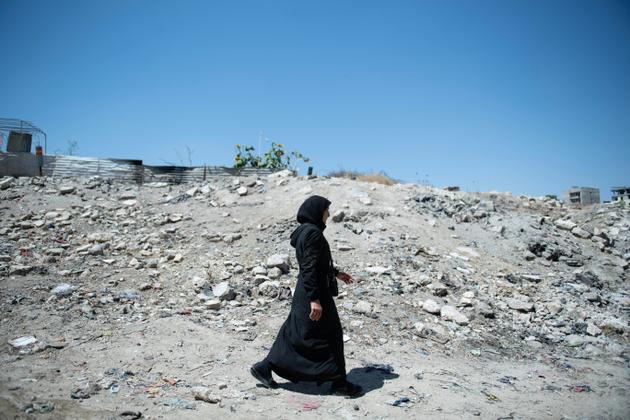


Since the war, Syrian women gained in autonomy in a society still dominated by men
Feature'Syrian Diaries' (6/7). After their husbands were killed, imprisoned or have fled abroad, many women find themselves alone at the helm of the household.
Yasmine (like the other witnesses quoted, she did not wish to give her name, and her first name has been changed) told her story with modesty, keeping certain details to herself. "My husband left me without a divorce 12 years ago. The war had changed him," said the 52-year-old Syrian, dressed entirely in black, from her veil to her long zipped coat. Her piercing, sparkling eyes testify to her strength of character. But the dark circles under them and her frail body tell of a life of hardship. She won't say what has become of her husband since 2012. That year, their neighborhood, Moon Square ("Douwar Al-Qamar" in Arabic), located between the fish market and Aleppo's Old City gate of Qinnesrine Gate, fell to the rebels.
The "Syrian Diaries" are a series of reports written in the summer of 2024. For security reasons, some of the people quoted in these articles have been given pseudonyms. For the same reasons, the names of the authors are not mentioned either.
The place, with its small houses lacking in charm and comfort, was best known for its prostitutes and drug dealers. Many of the men, Sunni workers and small shopkeepers, joined the rebellion. The drug dealers, joined by women and children, continued to sell their wares under one of the neighborhood's trees, while the fighters stocked the cellars of the houses and the tunnels dug into the hillside bordering the neighborhood with weapons and foodstuffs.

Yasmine fended for herself, with her four daughters and two sons. "We received no help from either side, because my son was in the army," she said. He died in combat. She hid her second son, so that the rebels wouldn't enlist him. Without flinching, she endured insults from both sides when she crossed the roadblocks to visit her mother in a neighborhood still in the hands of government forces.
'Nobody supports us'
A vacant lot stretched across the site of her former home. The block of buildings was bombed in 2014. Yasmine moved into a house whose owner left her the keys. When the neighborhood was retaken by government troops in 2016, not a single man remained. All were killed or left for the rebel enclave of Idlib, in northwestern Syria, and Turkey. Left abandoned by the authorities, the neighborhood fell back into poverty, drugs and prostitution.
"We see kids who are into drugs, seven-year-olds sniffing gasoline. There's a nine-year-old girl who's already had sex, stories of little girls being raped and assaulted at night, and even boys being sexually abused. We have three 15-year-old girls who are already married. One child was stabbed in the face because he waved to a classmate in the street," said Sumaya Hallak, who heads the 1-2-3 Hope Love Life for Peace association, which helps families in the area.
You have 66.24% of this article left to read. The rest is for subscribers only.
